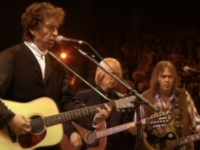Bob Belden, a looming but often behind-the-scenes figure in jazz, died Wednesday in the aftermath of a massive heart attack suffered a few days prior. He left us all too soon at the age of 58.
Belden had been in the thick of major jazz recordings issued or reissued in the last quarter century or so, but his name has rarely been presented in large, bright fonts. A producer, composer, arranger, liner notes writer, and yes, performer (saxophone, mainly), he’d also served as reissue producer on a number of classic fusion jazz albums from Miles Davis, Herbie Hancock, Weather Report, and a host of straight jazz reissues and compilations as well. If you’re into reading the credits on jazz CD sleeves, you’ve surely seen his name before, and most likely, a lot of times. And then there are his own projects, which often involved jazzifying the pop tunes of major figures like Sting, Prince, Carol King and The Beatles. But from the beginning, at least back when he covered Joe Zawinul’s “Directions” on his 1990 debut Treasure Island, Bob Belden has embraced and been involved with early jazz fusion music, especially that of Miles Davis.
Coming off of not one but two albums of the same live concert performing the songs of Bitches Brew, Bob Belden decided in 2012 to wipe the slate clean on his exciting, hard-hitting fusion band Animation and turn inward for inspiration. “This record is not a jazz record, it’s about my life in Manhattan,” is how Belden plainly described the new Animation album, issued by Rare Noise Records. Transparent Heart is the first studio Animation record in a decade, and for this most personal of Belden projects he entrusted young, talented musicians from the University of North Texas (Belden’s alma mater) to flesh out his suite of compositions dealing with different episodes or facets of nearly three decades living in the Big Apple.
[SOMETHING ELSE! REWIND: Animation’s Agemo re-casts Bitches Brew as a boiling cauldron of bass-heavy funk mashed up with the unpredictable improvisation of jazz. Add to that the electronic effects of DJ Logic, and there are a lot of elements swirling around in these songs, both in the originals and Animation’s interpretations]
Joining Bob Belden, who plays sax and flute, is a whole new band: 23-year-old keyboardist Roberto Verastegui, 24-year-old bassist Jacob Smith, 29-year-old trumpeter Pete Clagett and 20-year-old drummer Matt Young. Belden tossed these young men into challenging settings. The songs are all Belden’s, but the approach to music bears a close relationship to how Miles conducted his bands, especially during his classic fusion period. Songs are really broad canvases, on which the musicians are to paint their own brushstrokes without so much forethought that the emotion gets bleached out. There exists a collective spirit in constructing the basic ambience of each song that falls in line with its theme, while individual performances reveal the nuances of the stories.
The opening “Terra Incognito” uses strident, sweaty rock rhythm bumping up against the drawn-out, droning chords of the trumpet, soprano sax and an icy synth wash. The somewhat hopeful tones make way for the uncertainty, fear and friction of “Urbanoia.” It’s here where we first encounter the knotty drum ‘n’ bass hyperkinetic rhythms also heard on “Transparent Heart,” “Seven Towers,” and “Occupy!” which, while very modern, can also be traced to the strange, innovative rhythmic patterns introduced on On The Corner. Young performs well under the spotlight and Smith’s snarling bass completes a sinister groove that the Prince of Darkness surely would have loved.
“Cry In The Wind” is a brief but beautiful quiet moment on the album led by Bob Belden’s flute and meant to project, says Belden, “the extreme loneliness and helplessness that are heard all the time throughout the city.”
The title song (video of live performance below) exemplifies the clashing of cultures in the city and the energy thrown off by these conflicts. There really isn’t any soloing on this song, rather, the hard, unrelenting groove itself is the point of improvisation. “Seven Towers,” a musical first hand account of 9/11, showcases Clagett, who delivers soothing lines against an impatient pulse, finally bursting open at a climatic point. That’s followed by a suspended passage, and again, tension building up again this time led by Verastegui’s billowing electric piano.
allowfullscreen>
A slippery bass riff propels “Provacatism,” on which Bob Belden’s sax and Clagett’s electrified trumpet exploit. Clagett employs a muted horn as Belden switches to flute as they both lead the empyrean, celestial “Vanishment.” The last track “Occupy!” brings us to the present ongoing Occupy Wall Street demonstrations, represented another moment for tension release, but with a certain sadness and frustration pervading the song, too. Here, all three soloists — Belden, Clagett and Verastegui — get turns to carry out their own expressions about the violence between the protesters and the NYPD.
Bob Belden’s music journal of his roughly thirty years in Manhattan works very effectively as a theme that ties these eight pieces together into a coherent whole. Despite him intending that this isn’t “jazz,” it’s full of the immediacy and improvisation closely associated with jazz. As a set of personal impressions and recollections, though, he’s right; Transparent Heart is more than just jazz.
And so was Bob Belden. That makes his untimely passing all the devastating, but he left behind a body of work that are a testament to his fifty-eight years spent alive that was time well spent.
- Nels Cline – ‘Consentrik Quartet’ (2025) - March 31, 2025
- Seth Walker, “Why The Worry,” from ‘Why The Worry,’ (2025): Sneak peek - March 28, 2025
- Sylvie Courvoisier + Mary Halvorson – ‘Bone Bells’ (2025) - March 27, 2025




